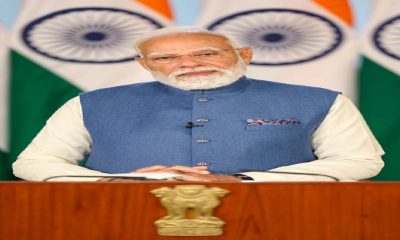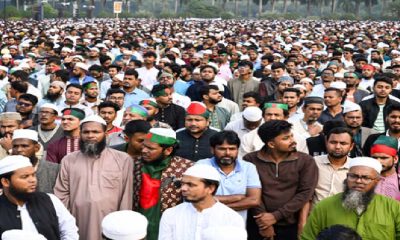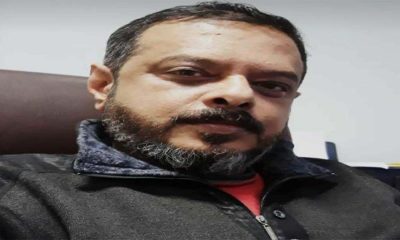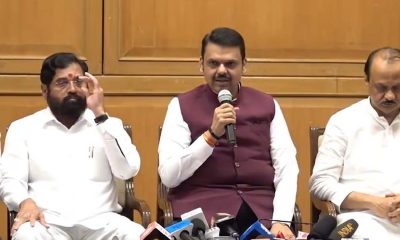Maharashtra
Maharashtra Cabinet Meeting Today, Major Decisions Expected Before Code Of Conduct For Assembly Elections 2024
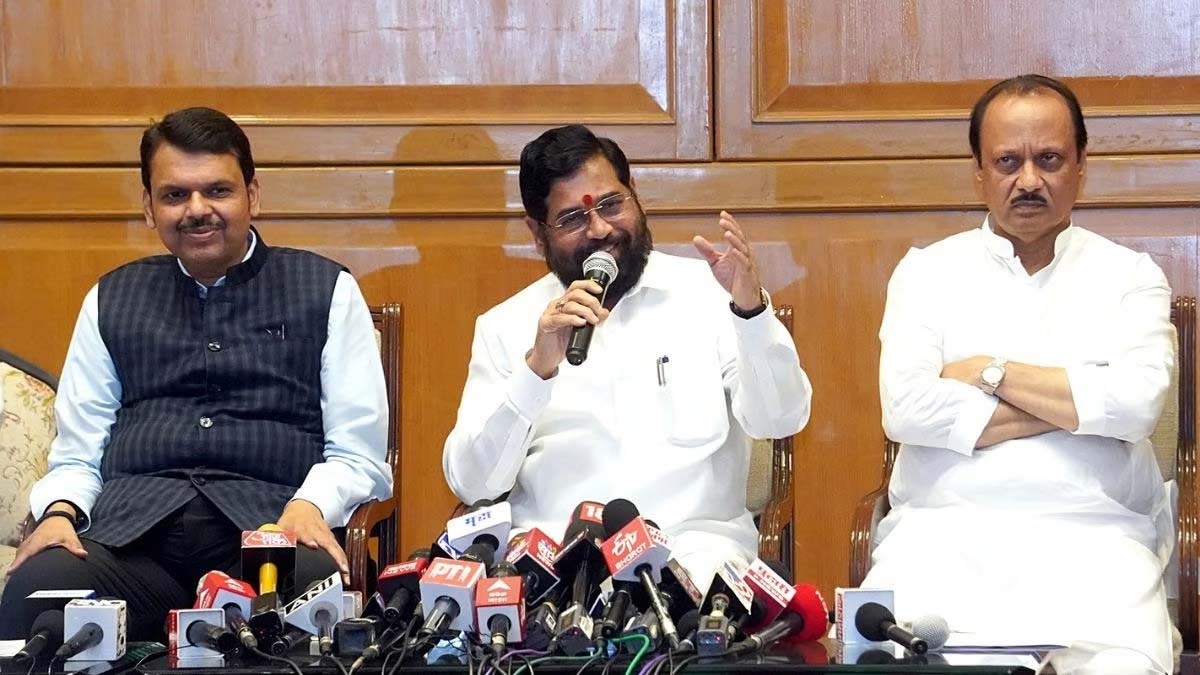
Mumbai: Ahead of the Maharashtra assembly elections 2024, the government has been holding marathon cabinet meetings. On Monday morning (September 30) too a cabinet meeting is scheduled and major decisions and announcements are expected as the model code of conduct for the assembly polls will come into effect anytime soon. The term of the current government ends on November 26 and polls will be held before that.
Last week, the government made 24 decisions in the cabinet meeting that were not on the agenda and were introduced at the last minute. Notably, this could be the last meeting before the election commission announces the polling schedule and model code of conduct is implemented, after which no government decision can be taken.
In the last cabinet meeting, the Mahayuti government took a significant decision ahead of polls to include three caste groups – Tilori Kunbi, Tillori Kunbi and Ti Kunbi in the other backward class (OBC) category. Approving a long pending demand of the milk producers, the cabinet decided to offer Rs 7 per liter, instead of Rs 5 as a grant for cow milk. The Rs 965.24 crore earmarked for the purpose will make scores of milk producers happy ahead of the elections as they will get Rs 35 per liter as the procurement price.
The state ministers have been hinting that the code of conduct will come into effect in first or second week of October. PM Modi is expected to be in Mumbai to inaugurate government’s ambitious underground Metro 3 project. While, Home Minister Amit Shah will be in Mumbai on tomorrow (Tuesday, October 1) to hold final talks on Mahayuti seat-sharing and poll preparations on the booth level.
It is said that after PM Modi’s and Amit Shah’s visit the assembly poll schedule will be announced. Meanwhile, on Saturday during the press conference in Mumbai, Election Commissioner India indicated that the elections are expected to occur after Diwali and acknowledged that political parties had requested the Election Commission to consider major festivals, like Diwali, when scheduling.
Maharashtra
Mumbai Municipal Corporation general elections: Attendance at election training mandatory for officers and employees, criminal action will be taken against absenteeism
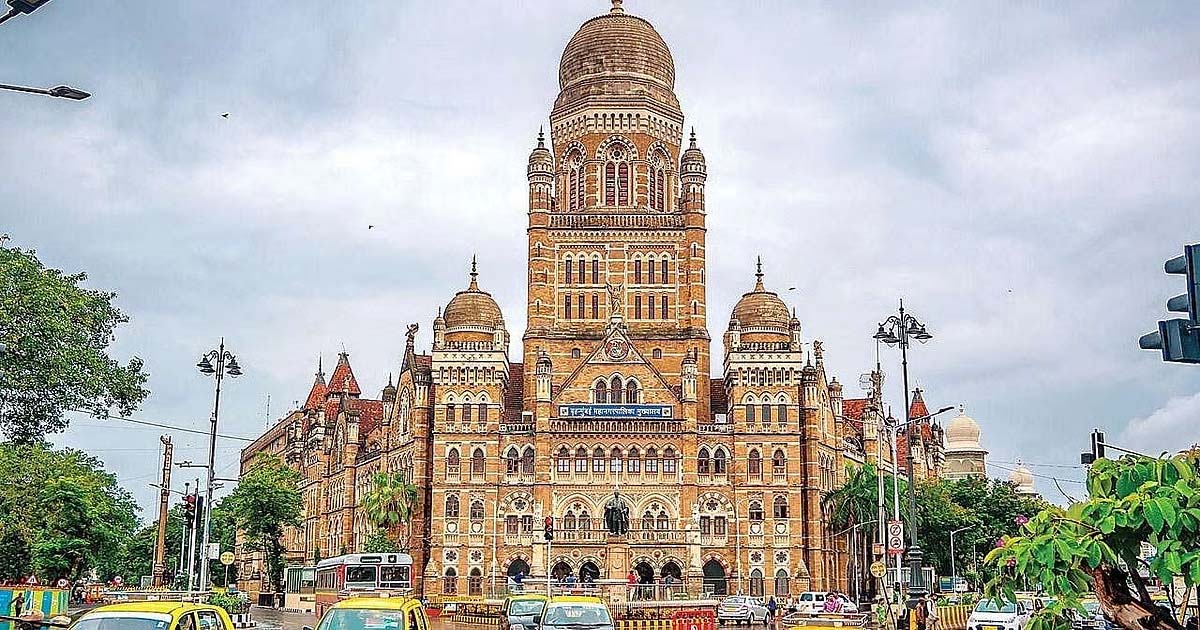
Mumbai: Municipal Corporation All officers and employees involved in the election process will be provided with necessary training to conduct the general elections in a transparent, fair and smooth manner. Training sessions have been organized from Monday 29th December 2025 to Monday 5th January 2026. The date, time and venue of the training have been intimated separately to all the concerned officers and employees. It is mandatory for the officers and employees to attend this training. The Municipal Corporation Administration has issued a strict warning that as per the instructions of the Hon’ble State Election Commission Maharashtra, criminal action will be taken against the officers and employees who are absent from the training or do not follow the orders. The State Election Commission, Maharashtra has announced the election schedule for the Municipal Corporation General Elections 2025-26. The voting process for the Municipal Corporation General Elections will be on Thursday 15th January 2026 from 7.30 am to 5.30 pm. Also, the counting process and results will be declared on Friday 16th January 2026 from 10 am.
All the stages related to the election process have been strictly planned to conduct the Municipal Corporation General Elections in a completely transparent, fair and smooth manner. Since it is necessary to provide necessary training to the Polling Station President (PRO), Assistant Polling Station President (APRO), Polling Officer (PO) and the employees involved in this election process, special training sessions have been organized by the Municipal Administration. This training session has been organized from Monday, December 29, 2025 to Monday, January 5, 2026. Training will be implemented in various stages during this period. The training will provide detailed guidance on the responsibilities of the election process, code of conduct, voting and counting process, legal matters and steps to be taken in emergency situations. The main objective of the election training is to make the election process credible and transparent by avoiding any kind of error, ambiguity or malpractice.
The date, time and venue of the training have been communicated to all the concerned officers and employees through separate appointment orders. It is mandatory for all officers and employees to attend this training. Absence will not be accepted for any reason. As per the directions of the State Election Commission, the Municipal Corporation Administration is giving a strict warning that officers and employees who are absent from the training session, do not comply with the orders or fail to perform their duties in the election process, will be subject to disciplinary action including criminal proceedings under Section 28 (a) of the Mumbai Municipal Corporation Act, 1888. Please take this matter very seriously and attend the training and discharge your duties honestly.
Crime
मुंबई के पायधोनी में करोड़ों रुपये के ड्रग्स के साथ 9 आरोपी गिरफ्तार, इनमें 3 महिला तस्कर भी शामिल

मुंबई : ड्रग्स के खिलाफ एक बड़े ऑपरेशन में, पायधोनी पुलिस ने 1 करोड़ रुपये से ज़्यादा की हेरोइन ज़ब्त करने और दो पुरुष और दो महिला ड्रग पेडलर को गिरफ्तार करने का दावा किया है। जानकारी के मुताबिक, 16 दिसंबर को दोपहर 2:30 बजे पायधोनी पुलिस स्टेशन की सीमा में पी.डी.मेलो रोड पर एक सर्च के दौरान, 37 साल के राम नटवर ठक्कर और 27 साल के वसीम सैयद के पास से 326 ग्राम से ज़्यादा हेरोइन बरामद की गई। आरोपियों को गिरफ्तार कर लिया गया और उन पर एनडीपीएस एक्ट के तहत मामला दर्ज किया गया। जांच के दौरान, आरोपियों ने बताया कि वे ड्रग्स कहां से लाए थे। उसके बाद, पुलिस ने 30 साल की रुबीना सैयद को गिरफ्तार किया। उसने बताया कि वह शबनम शेख के संपर्क में थी। उसे राजस्थान के अजमेर से गिरफ्तार किया गया। जब यह पता लगाने के लिए जांच की गई कि इन दोनों महिलाओं ने ड्रग्स कहां से हासिल किए थे, तो शबनम शेख को ड्रग्स बेचने वाले व्यक्ति, मुस्कान समीउल्लाह शेख 19 साल को मस्जिद बंदर इलाके से गिरफ्तार किया गया। पुलिस को जानकारी मिली थी कि अब्दुल कादिर शेख और मेहरबान अली मुस्कान को ड्रग्स सप्लाई करने आ रहे हैं, जिस पर पुलिस ने जाल बिछाकर अब्दुल कादिर को गिरफ्तार कर लिया। उसके पास से ड्रग्स भी बरामद हुए। जोगेश्वरी में उसके घर की तलाशी के दौरान नवजीत गुलाबी खान, शारिक सलमानी, समद गुलाबी के पास हेरोइन मिली। उनके पास से कुल 33 करोड़ से ज़्यादा कीमत के ड्रग्स ज़ब्त किए गए। इस ऑपरेशन में पुलिस ने तीन महिलाओं और 6 पुरुषों को गिरफ्तार किया और करोड़ों रुपये के ड्रग्स ज़ब्त किए। यह ऑपरेशन मुंबई पुलिस कमिश्नर देविन भारती के निर्देश पर डीसीपी विजय सागरे ने किया।
Maharashtra
Mumbai: Tardeo Police Assistant Sub-Inspector violent, indecent behavior with a woman, two goons arrested, ASI also booked for molestation
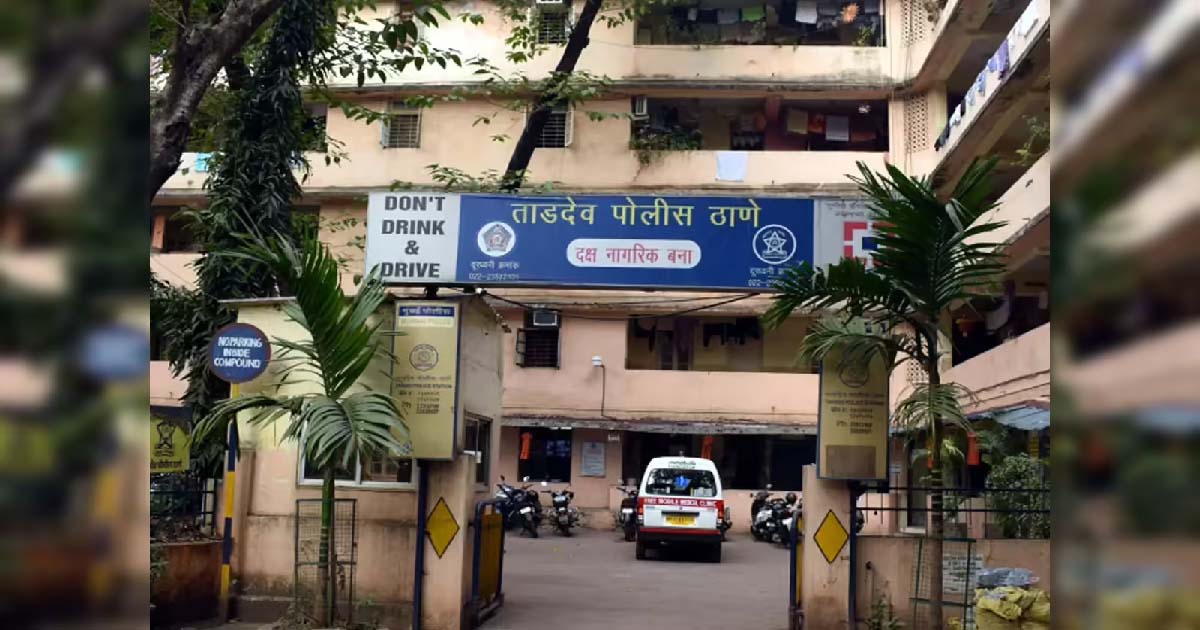
Mumbai: Police has claimed to have arrested two criminal goons who tarnished the image of Mumbai Police by beating up Assistant Sub-Inspector Sanjay Rane and making his social media. Sanjay Rane was found indecently acting with a woman in Tardeo’s garden, after which both the men grabbed the ASI by the collar and beat him up. The police officer told them that he was ready to go to the police baton post for a mistake, but both of them did not listen to the ASI and beat him up and put his hand on the police uniform. The ASI’s video was also viral on social media, after which the Tardeo police have taken action against the criminal accused Irfan Iqbal Sheikh and Abbas Muhammad Ali Khan under sections 127, 353(1) B115, 352, 351, 202 of the BMS. Earlier, the police had registered a case of molestation against the above-mentioned ASI and now Both the accused have been arrested while taking action. When Sanjay Vilas Rane committed an indecent act, they both caught him and Sanjay said that he was ready to go to the police station, but both of them started a fight with the accused of molestation, Sanjay, and abused him. The aim of both of them was to tarnish the image of the police and create terror in the area, so both of them attacked the police and took the law into their own hands, after which action has been taken against both of them. Mumbai Police For the safety of the public, if a police officer does something wrong, he can be punished according to the law, but no one has the right to take the law into their own hands, so taking action against both of them, they were arrested and the court has sent them on remand.
-

 Crime3 years ago
Crime3 years agoClass 10 student jumps to death in Jaipur
-

 Maharashtra1 year ago
Maharashtra1 year agoMumbai Local Train Update: Central Railway’s New Timetable Comes Into Effect; Check Full List Of Revised Timings & Stations
-

 Maharashtra1 year ago
Maharashtra1 year agoMumbai To Go Toll-Free Tonight! Maharashtra Govt Announces Complete Toll Waiver For Light Motor Vehicles At All 5 Entry Points Of City
-

 Maharashtra1 year ago
Maharashtra1 year agoFalse photo of Imtiaz Jaleel’s rally, exposing the fooling conspiracy
-

 National News1 year ago
National News1 year agoMinistry of Railways rolls out Special Drive 4.0 with focus on digitisation, cleanliness, inclusiveness and grievance redressal
-

 Maharashtra1 year ago
Maharashtra1 year agoMaharashtra Elections 2024: Mumbai Metro & BEST Services Extended Till Midnight On Voting Day
-

 National News1 year ago
National News1 year agoJ&K: 4 Jawans Killed, 28 Injured After Bus Carrying BSF Personnel For Poll Duty Falls Into Gorge In Budgam; Terrifying Visuals Surface
-

 Crime1 year ago
Crime1 year agoBaba Siddique Murder: Mumbai Police Unable To Get Lawrence Bishnoi Custody Due To Home Ministry Order, Says Report





